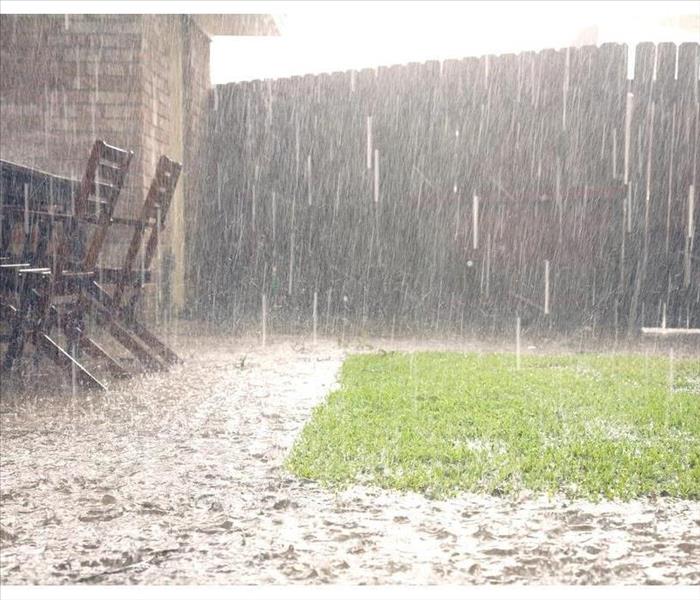3 Ways Rain Can Lead to a Mold Problem
12/26/2020 (Permalink)
3 Ways Rain Can Lead to a Mold Problem
All kinds of mold, including black mold, depend on moisture to grow. When it rains in New Briton, PA, your home becomes exposed to moisture. Normally, this is not a problem, since houses are designed to exclude moisture very effectively. When parts of your home are improperly maintained, however, moisture can infiltrate your home and cause a mold infestation.
1. Leaking Roofing
Deteriorating roofing is often responsible for water infiltrating residential buildings. Mold that develops as a result can spread from an attic to the rest of your house if not properly stemmed. While it may seem like thoroughly cleaning the surface of your roof is enough to prevent further leaks, this is often not the case. Roofing is a critical element of your home that needs to be fixed in order to avoid a moisture problem.
2. Leaking Drainage
Water vessels from outside can lead to black mold and other molds entering your home. Make sure to carefully inspect all of your drainage systems in order to ensure that no water is leaking in through cracks, drill holes, or contacting surfaces. If you do find a serious leak that has already caused water damage, it may be necessary to tear out and replace damaged surfaces.
3. Flooding
Severe weather events often lead to flooding that goes unnoticed by homeowners. During a storm, you should always check low areas in your home to see if water has seeped in. Make sure that your sump pump is working properly by testing it regularly. Basement flooding that goes undetected can lead to large-scale mold cleanup, so you should take preventative measures ahead of time.
News stories about black mold may have you concerned for your home and family. In truth, removing a mold infestation is possible after even the most serious weather events your family is likely to face. If you require a cleanup, contact a mold restoration company who will be able to deal with an infestation efficiently and safely.





 24/7 Emergency Service
24/7 Emergency Service
